Iran Passport Ranks Among Least Prestigious Ones in 2023

The latest ranking of the Henley Passport Index shows that Islamic Republic’s passport ranked 99th in the world in terms of the access it grants the holder to other nations.

The latest ranking of the Henley Passport Index shows that Islamic Republic’s passport ranked 99th in the world in terms of the access it grants the holder to other nations.
Based on the index’s data published on its website, Iran’s passport grants visa-free or visa-on-arrival access to 43 destinations in the first quarter of 2023.
It means that Iranians need a visa to access 156 countries globally.
Concerns about people fleeing Iran and possible destabilizing actions in other countries by Islamic Republic agents are prime reasons for widespread travel restrictions.
Visa-free countries include those where entry is possible without a visa, and with a visa on arrival.
The Henley Passport Index is the original, authoritative ranking of all the world’s passports according to the number of destinations their holders can access without a prior visa.
The index includes 199 different passports and 227 different travel destinations. Updated quarterly, the Henley Passport Index is considered the standard reference tool for global citizens and sovereign states when assessing where a passport ranks on the global mobility spectrum.
Before 1979 revolution which led to the ouster of Mohammad Reza Shah, Iranians could travel without visas throughout Western Europe, except Austria and Switzerland.
Meanwhile, according to the new report by Henley Passport Index, Japan ranks number one in the first quarter of 2023 with having access to 193 countries.
Singapore and South Korea shared second place in the world's most prestigious passport ranking.
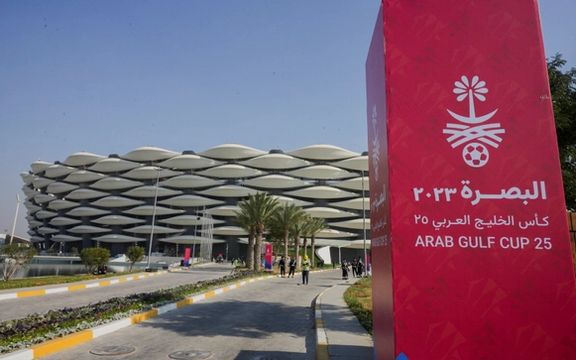
An old row between Iran and regional Arab countries over the name of the Persian Gulf has come to the fore again but this time between Tehran and Baghdad and in a sport event.
Iran’s Foreign Ministry spokesman Naser Kanaani said on Monday that Tehran has expressed its objection to Baghdad over the use of the name of the Persian Gulf incorrectly, using the “fake” misnomer of “Arabian Gulf.”
He made the remarks after many Iranians criticized the government over its inaction when Iraq did not use ‘Persian Gulf’ for an Asian football (soccer) event. The Iraqi southern city of Basra is hosting the return matches of a local competition, and Iraq set up billboards to welcome the foreign teams to the “25th Arabian Gulf Cup.”
Many Iranians oppose the Islamic Republic’s policy of spending money in the region to buy support, including in Iraq where Tehran has been supporting an array of Shiite militias and pretends to have a lot of political influence in Baghdad.
The dispute started in early 1960s, when the Egyptian Arab nationalist president Gamal Abdul Nasser began calling the Persian Gulf the “Arabian Gulf.”
The football cup was kicked off on Friday, January 6, with an extravagant opening ceremony attended by local and regional officials as well as FIFA President Gianni Infantino. “It was great to have attended the opening ceremony and the opening game of the 2023 Arabian Gulf Cup in Basra between Iraq and Oman,” said the FIFA president.
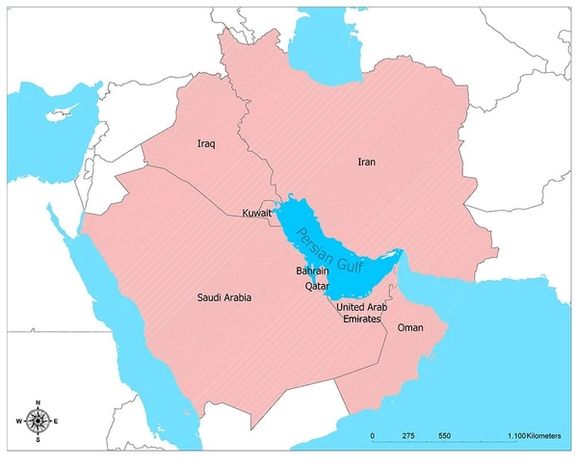
Kanaani said that the country’s diplomatic service protested the action but did not announce it, noting that “a lack of notification does not mean lack of action." “The Persian Gulf is the Persian Gulf, and as soon as we learned about the issue, we announced our protest to the Iraqi government,” he said, adding that the issue was in relation to a sports event, and the Sports Ministry and the Football Federation followed up on the issue.
The Iranian football federation announced on Saturday that it will be delivering a protest statement to FIFA over the naming of the tournament, saying “Persian Gulf is a noble and historical name, which has been applied in all languages and various atlases, including ancient and historical maps.”
The issue was discussed during a session of the Iranian parliament Sunday, when MP Alireza Salimi said, “I want those who use the fake name Arab Gulf in Arab countries to study history. The Persian Gulf is, has always been, and will always be Persian.” Similar remarks were echoed by other members accusing the Arabic countries of trying to “falsify history.”
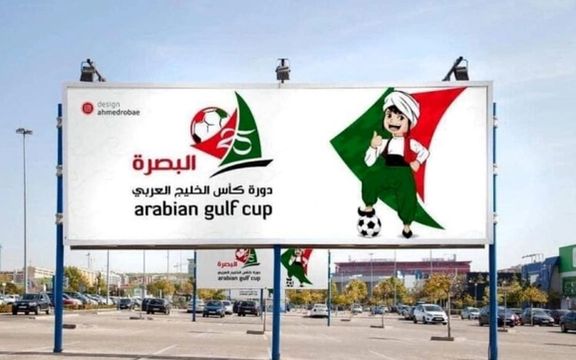
Bayati called on Iraq’s Prime Minister Mohammed Shia’ al-Sudani and influential Shiite cleric Muqtada al-Sadr to apologize for the naming of the tournament.
Sudani, who was himself present during the opening ceremony of the tournament at the Basra International Stadium, addressed the event and described it as a manifestation of the unity of the “Arab and Gulf brothers.” Iraqi local media said that Sadr and many other Iraqi figures have referred to the tournament as “the Arabian Gulf Cup” in their tweets and statements in the days leading up to the event’s launch.
The tourney has been officially called “Arabian Gulf Cup” but often referred to simply as “the Gulf Cup,” neither of which satisfy Iran that insists on the use of Persian Gulf.”’ Iran’s national football team has never been part of the tournament. Saudi Arabia, Oman, Yemen, Bahrain, Kuwait, Qatar, the United Arab Emirates, and Iraq are the participants.
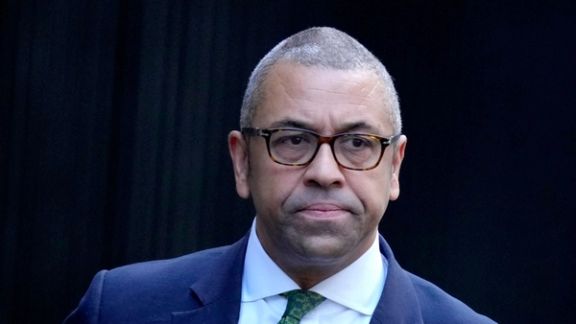
Global consequences of hanging of two more protesters continue for Iran with the EU and UK summoning the Islamic Republic’s ambassadors on Monday.
Stefano Sannino, the secretary-general of the European External Action Service (EEAS), reiterated the European Union's outrage to the ambassador, Hossein Dehghani, saying that the bloc is appalled by the executions at the weekend of two Iranians arrested in the course of the regime’s crackdown on anti-government protests, ignited by the death of Mahsa Amini in custody of hijab police.
He also repeated an EU call on the regime’s authorities to annul without delay death sentences already pronounced against other protesters. Iran's judiciary said Monday that a court has sentenced three more protesters to death for “war against God”.
Earlier in the day, Britain's foreign minister James Cleverly summoned Iran’s most senior diplomat on Monday after Iranian authorities executed protestors Mohammad Mahdi Karami and Seyyed Mohammad Hosseini."Today I have summoned the Iranian Chargé d’Affaires to condemn in the strongest possible terms the abhorrent executions we witnessed over the weekend," he said in a statement.
The two men were hanged on Saturday for their alleged role in the killing of a government agent during protests that followed the death of Amini, creating uproar in the international community against the Iranian regime.The latest execution brings the number of protesters officially known to have been executed since the unrest to four.
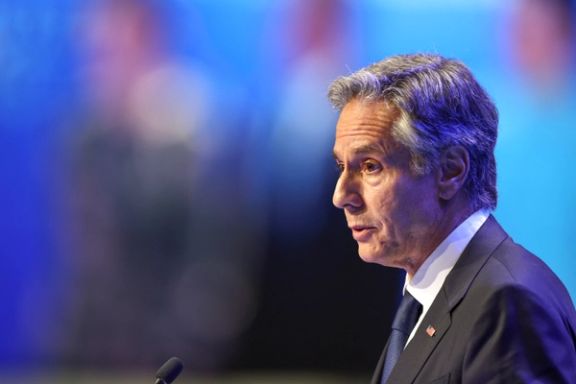
Two top United States officials are due this month to visit Israel’s new government, but analysts are not expecting new US regional initiatives.
Jake Sullivan, the US National Security Advisor, said Monday in Mexico, accompanying President Joe Biden, that Iran would be a “substantial topic of conversation” for his trip. Dates were still being worked out, a US security spokesman said.
Sullivan said the two sides would have “the opportunity to engage deeply…on the threat posed by Iran.” Benjamin Netanyahu said it was “time for Israel and the US to be on the same page.”
Antony Blinken, the US Secretary of State, is also due in Israel this month, but officials up to Biden have intimated that their primary focus is not on the Middle East, but with the Russia-Ukraine war including the supply of Iranian drones to Russia and efforts to manage relations with China. Ben Shapiro, a former US ambassador to Israel, told the Jerusalem Post that the Sullivan and Biden visits did not “mean the Biden administration has changed its approach on where its highest priorities are – which is not in the Middle East.”

Sullivan reiterated Monday that while US policy aimed at reviving the 2015 Iran nuclear agreement, the JCPOA (Joint Comprehensive Plan of Action), this was not a focus for US officials. Some analysts argue US, while shifting energies elsewhere, has adopted a more militaristic approach inasserting a willingness – as the July joint statement with Israel put – to “use all elements of its national power” to ensure that “Iran does not acquire a nuclear weapon.”
Sullivan also said Monday that Iran could be contributing to war crimes in Ukraine by providing drones to Russia.
While this all lessens tension with Netanyahu, a vehement JCPOA opponent and supporter of President Donald Trump in pulling the US from the agreement in 2018, it suggests Washington is happy to offer Israel forms of military cooperation that may restrain any notions of a military attack on Iran while enabling the US, effectively, to ‘spy’ on Israel.
Clear nerves in Washington
At the same time, recent US statements of support for the ‘two state solution’ for Israel-Palestine show clear nerves that Netanyahu’s new right-wing government may both enflame the occupied West Bank and undermine the Washington-backed ‘normalization’ agreements Israel has signed with some Arab states.
Itamar Ben Gvir, the new ultra-Zionist security minister who controversially visited the al-Aqsa mosque in Israeli-occupied east Jerusalem on taking office, Sunday banned public displays of the Palestinian flag as showing “identification with a terrorist organization.”
The government also froze $40 million in revenue due to the Palestinian Authority (PA). Netanyahu defended both moves as a response to the late December United Nations vote asking for an International Court of Justice opinion on the 56-year Israeli military occupation. While Israeli police routinely remove the flag, especially at protests, it has officially been tolerated since the 1994 establishment of the PA, and the decision has sparked fears of continuing unrest and violence that saw 146 Palestinians killed in the West Bank in 2022.
Bahrain, Egypt, Morocco and the UAE turned up in Abu Dhabi Monday for a two-day steering committee of the ‘Negev Forum,’ under which the Arab states meet Israel and the US. But Jordan, whose ‘normalization’ with Israel goes back to 1994, stayed away. Bahrain, Egypt, Morocco and the UAE all voted for the US resolution – as did Iran.
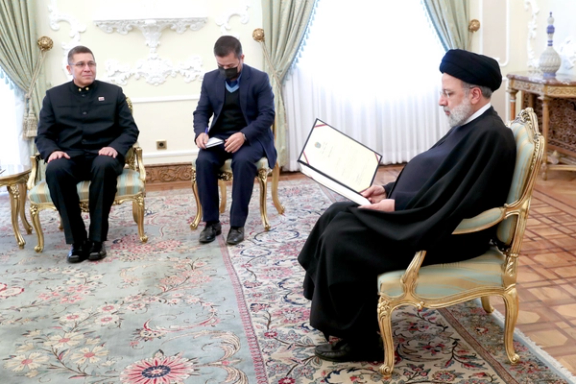
Iran’s President Ebrahim Raisi has warned Venezuela’s Nicolás Maduro against normalizing relations with the United States, after signs that Caracas entertains the idea.
In a meeting with the new ambassador of Venezuela to Tehran on Sunday, Ebrahim Raisi claimed, the Americans want closer ties with Venezuela due to the country's need for energy resources.
Raisi’s warning came as President Nicolás Maduro said in a televised interview on Sunday that "Venezuela is ready, totally ready, to take steps towards a process of normalization of diplomatic, consular, and political relations with the current administration of the United States and with administrations to come."
The Maduro regime has been trying for years to find ways to reduce the impact of US sanctions with help from the Islamic Republic
"We are prepared for dialogue at the highest level, for relations of respect, and I wish a beam of light would come to the United States of America, they would turn the page and leave their extremist policy aside and come to more pragmatic policies with respect to Venezuela," he said.
Venezuela welcomed negotiations with the United States after the Biden administration reduced restrictions on Venezuela's oil sector, and in recent days, the first shipment of Venezuelan oil was sent to the United States.
Maduro cut off ties with Washington in 2019, when the administration of Donald Trump recognized Juan Guaido as Venezuela's interim president.
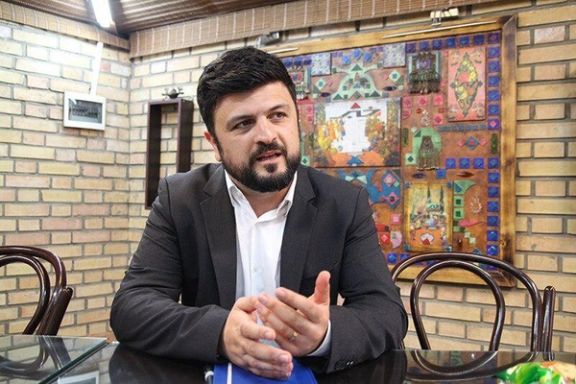
The German foreign ministry has been criticized for its continued funding of a consultation firm - which is said to be linked to the Islamic Republic - under a two-year contract worth €900,000.
German MP Norbert Röttgen, who previously served as a Chair of the Bundestag Foreign Affairs Committee, said in a tweet that the German Federal Foreign Office is still financing the Carpo thinktank, an institute led by Adnan Tabatabai who allegedly lobbies for the Islamic Republic, under the two-year contract.
Adnan Tabatabai is co-founder and CEO of the Berlin-based Center for Applied Research in Partnership with the Orient (CARPO), and is the son of Sadeq Tabatabaei, the brother-in-law of the Islamic Republic’s founder Rouhollah Khomeini who served as Iran’s deputy prime minister from 1979 to 1980. Adnan is known in international media as an Iran expert who supports the regime.
He has on several occasions talked about normalizing relations between the West and the Islamic Republic and is in favor of reviving the 2015 nuclear deal or the JCPOA. He is consulted by the German Federal Foreign Office, members of the German Bundestag, political foundations as well as journalists and authors.
The move seems contradictory to Berlin’s policies of pressuring the Islamic Republic over its human rights violations. Debate still rages in Germany over listing Iran’s Revolutionary Guards as ‘terrorists,’ with Röttgen tweeting “You have to Decide Now.”
Rottgen, a member of the Christian Democratic Union, has been at loggerheads with Foreign Minister Annalena Baerbock, a Green, since Baerbock announced October 31 that the European Union was considering sanctioning the Guards (IRGC).